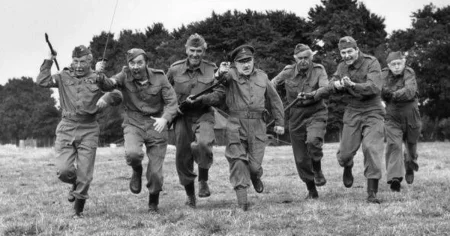Ashley Armstrong, a 28-year-old with cerebral palsy who uses a wheelchair, experienced a difficult situation when he got stuck on a Metrolink platform for an hour due to a lift breakdown at the tram stop in Prestwich. He had tried calling for help multiple times but received no response. He was travelling home from Piccadilly on a Sunday when he arrived at Heaton Park tram stop around 3 pm to find the lift out of order. He pressed the help button on the platform and tried phoning for assistance but to no avail. Eventually, he had to catch another tram to the next stop to use the lift on the other side, but encountered further delays due to the reduced Sunday service.
Transport for Greater Manchester (TfGM) has since apologized for Ashley’s unpleasant experience and explained that vandals damaged the lift at Heaton Park tram stop on March 10. Despite waiting for parts to fix it, the lift has now been repaired and is operational. Ashley expressed his frustration, questioning why there wasn’t a warning at Piccadilly station about the lift problem. He emphasized the importance of making information about out-of-order lifts at tram stops easily accessible to individuals with mobility issues. While all 99 Metrolink stops are supposed to be step-free, some require lifts or escalators, and currently, seven tram stop lifts or escalators are not working, including Besses O’th Barn and Cornbrook.
TfGM officials acknowledged the issues faced by Ashley and stated that they have forwarded his experience to the Metrolink operator for investigation. The broken lift at Heaton Park was a result of vandalism, and although parts were needed to fix it, the lift has since been repaired. Ashley highlighted the need for better communication regarding lift outages, especially for individuals with disabilities or those using prams. He stressed the importance of proactive communication to prevent such situations in the future. The TfGM website mentions that efforts are being made to ensure accessibility across all tram stops, but incidents like this highlight the challenges faced by passengers with mobility constraints.
Ashley’s ordeal sheds light on the challenges faced by people with disabilities when using public transportation. The lack of functional lifts significantly impacts their ability to navigate and travel independently. Instances like this underscore the importance of ensuring accessible infrastructure and prompt resolution of issues to support the needs of all passengers. Public transit authorities must prioritize maintaining accessibility features to provide a seamless travel experience for everyone. Continued efforts are necessary to address accessibility gaps and enhance the overall inclusivity of public transportation systems.
The incident involving Ashley Armstrong serves as a reminder of the obstacles individuals with disabilities encounter in their daily lives, particularly in accessing essential services like public transportation. By sharing his experience, Ashley has drawn attention to the critical need for reliable accessibility features and effective communication strategies to support the diverse needs of passengers. The response from TfGM indicates a commitment to addressing the challenges faced by passengers with mobility constraints and improving accessibility across tram stops. Moving forward, collaborative efforts between transit operators and advocacy groups can drive positive changes that benefit all passengers on public transport systems.















